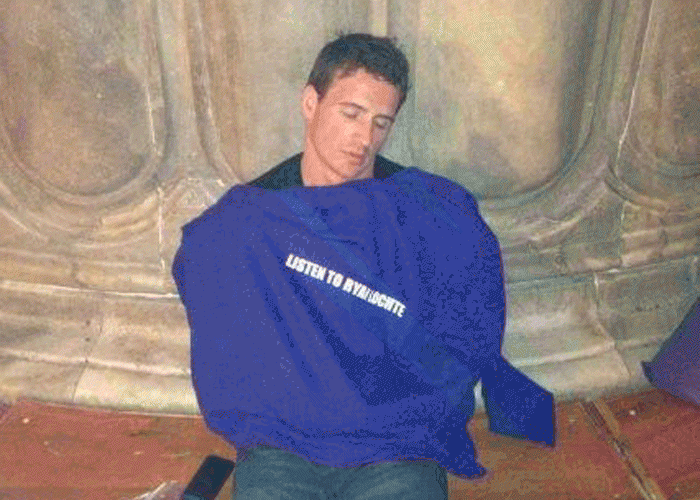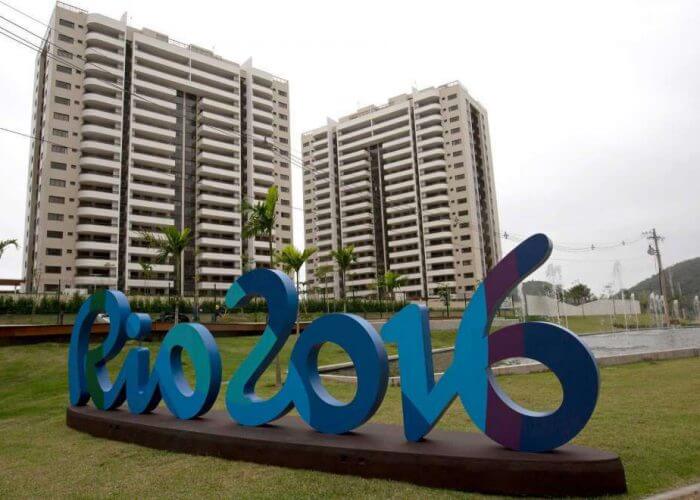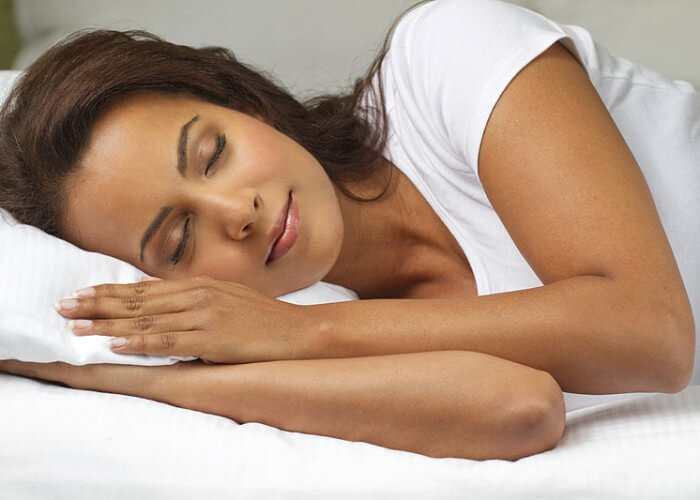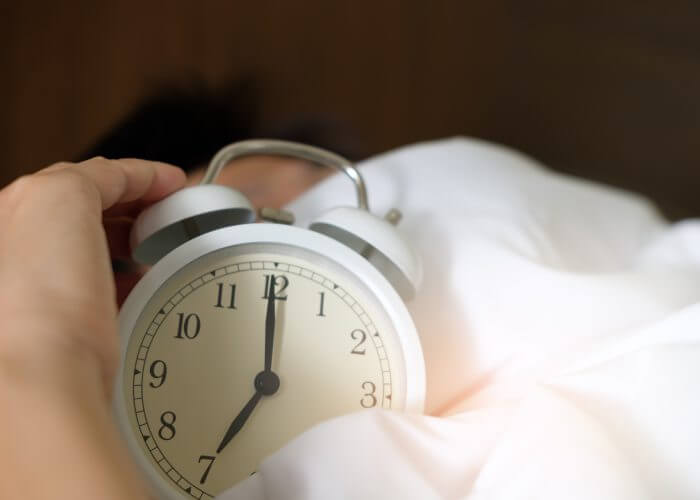The Power Of Napping And The Feel-Good Factor That May Be Key To The Swimmers’ Ability To Nod Off Fast

The Power Of Napping & ‘Sleepability’ Are The Focus Of New Loughborough Research
Just done another run and workout in the home gym, the flume or paddling pool in the backyard? Endured hours of home-schooling (as parent or child) while getting your own job done? Perhaps you’ve walked the dog, done the weekly shop or finally got to grips with that new hobby in between an umpteenth Zoom chat or webinar? You may well be up a ladder as I write, holding your hand over the water pipe you just drilled through trying to fix trellising abandoned long ago. Whatever life is like in lockdown, one thing unites us all: a good nap.
Scientific studies show that being tired doesn’t guarantee a good sleep, while napping has its light and dark too. It’s an art that swimmers tend to be pretty good at, not least because they’re among the hardest workers in world sport.
How many recall a morning that started with a main set of 10x400s or 20x200s, included breakfast on the way to class and, a waft of chlorine never too far away, a desperate fight to keep heavy lids open during a lengthy appraisal of “the socioeconomic system of medieval Europe”, the sun spilling through the window a lesser foe than the teacher chucking chalk at you?
Little did those chalk chuckers know that the swimmer knew best. Napping is not only a part of an aspiring Olympian’s job, it’s the spark that relights the fire for the next task ahead. Take this lot: great nappers include Leonardo da Vinci, who would take 15-minute naps every four hours throughout the day and sleep less at night. Aristotle, Napoleon Bonaparte, Winston Churchill, Margaret Thatcher, Thomas Edison, Eleanor Roosevelt and Benjamin Franklin all got it too.
Then there were the champion micro-nappers, like Salvador Dali, the artist whose afternoon nod-offs were designed to last no longer than a single second. Dali would sit in a chair with a hefty metal key held between thumb and forefinger; the moment he fell asleep, the key would fall from his grip and he would awaken “revivified” in mind and body.
Albert Einstein had a similar technique, sitting in his chair holding a pencil or a spoon as he dozed off, the eventual and inevitable clatter his alarm. No napper is like another, however, and Einstein also understood the power of sleep: he liked to get 10 hours a night in to rest his racing mind.
The Racing Mind – A Tale Of Two Mindsets
According to a new study from a team at Britain’s Loughborough University, training, fatigue and napping are not the most straightforward of bed fellows. It turns out, according to Luke Gupta, Kevin Morgan, Courtney North & Sarah Gilchrist in their paper “Napping in high-performance athletes: Sleepiness or sleepability?” (work carried out with the English Institute of Sport and are published in the European Journal of Sport Science), that athletes are no more tired than the rest of us – they’re just much better at nodding off.

Ryan Lochte – Photo Courtesy: Twitter, @RyanLochte
The ability to get to sleep and the quality of sleep count. Surveys have shown that elite athletes are regular nappers. Here’s what former USA teammates and medley sparring partners Michael Phelps and Ryan Lochte once said:
“I guess I probably got to sleep at 3am and I was on an 11am bus. Quick turnarounds but the good thing is we have a long time between prelims and finals, so hopefully I can get home, get a quick nap in and be ready for tonight.” – Phelps
“We’re the best nappers because I think swimming is one of the hardest sports to train for. You’re using every muscle in your body. You keep doing that day in and day out. You get worn down. It’s a lot easier to nap because you’re always tired. Usually with my schedule, you train then you have weights. I’m usually so exhausted from morning practice that it’s so easy to take a nap. I try to get an hour and a half in. That’s the perfect ideal nap time.” – Lochte
Napping For The Feel-Good Factor
For their study into the power of napping, the Loughborough team invited three groups of 10 people (16 men and 14 women) to pop into the lab at the university and see if they could take a 20-minute nap. Of course, being asked to take a nap and just taking a nap involve a nuance of difference but that aside, the experiment was straight cut. The visitors were split into three groups:
- elite athletes (averaging 17 hours of training per week)
- sub-elite athletes (averaging 9 hours of training per week)
- non-athletes

Image courtesy of Loughborough University
The question was one of sleep latency: how fast, if at all, would the participants be able to nod off?
No great surprises to find the elite athletes fell asleep the fastest and non-athletes had the most difficulty in nodding off.
You can read the paper for measures and methodology used.
It gets more interesting in the depth of the study. The Loughborough team also assessed other variables, such as:
- how much each person had slept the night before
- how tired they felt at 2pm, 2.30pm and 3pm immediately before they were allowed to nap if they could
Sleepiness was assessed on a nine-point scale called the Karolinska Sleepiness Scale. It revealed no difference between the groups. The elite athletes were no more fatigued or sleepy than others – but they were much better at falling asleep.
Sleepability, the ability to fall asleep quickly, is described in some academic literature as a “skill”. In other words, some people can do it better than others. This might have to do with better abilities to manage levels of hyperarousal that can interfere with sleep or it may have much to do with the difference in racing minds: the average Olympic finalist with a fairly singular, goal, plan, dedication and routine is likely to be living a life somewhat remote from the juggling of many other lives in which people run households and budget for them, raise three kids, arrange their schooling, their sport, their music and more, manage the daily routines of the whole family as well as their own job(s), look after elderly or sick relatives and much else that might keep one awake at night.

Olympic Villages like that in Rio come with myriad distractions at a time when the athlete needs to find a way to feel settled and able to find fast and good sleep – Photo Courtesy: Rio Media
Not all athletes are the same of course and in a conversation about why some team members had done tremendously well but others had fallen dramatically shy of best, one Olympic podium placer told me that success in strange circumstances was in part to do with the ability to feel instantly settled in whatever environment you were faced with when away at meets. He had “felt at home” the moment he placed his kit bag on the bed in the room that would be home for the next two weeks at a Games; others, he noted, had fretted for days over everything that wasn’t as close as possible to what they were used to back home – and that had contributed to altered sleep patterns and created a knock-on effect that spilled into the pool on race day. Basically, they blew their preparation, he believed, by not being able to stay settled within themselves because of a change of environment, one with many distractions if you let all about you be a distraction.
The Loughborough team looked into that aspect of things. Were athletes more accustomed to falling asleep in unfamiliar environments, given that they travelled to meets and camps so often and were more used to not being home than many others? To find answers, the researchers repeated the experiment twice to see if time had made the lab a more familiar place and greater comfort zone.
The result: all participants fell asleep a few minutes faster but the gap between the groups remained more or less the same and, therefore, environment was a factor for all not an explanation for why the elite athletes were able to nod off faster than the rest.
All this thinking about sleep and the power of napping is not new, of course. Sleep has been seen in culture as being similar to death since antiquity. In Greek mythology, Hypnos, the god of sleep, and Thanatos, the god of death, were both said to be the children of Nyx, the goddess of night.
The D-R-E-A-M Team

Photo Courtesy: A. Weisenfels
More recently, researchers at University of California, Riverside, suggested in a 2018 paper cited by the Loughborough team, that there were five different types of napping, which, conveniently, spell out the word “dream”.
- Dysregulative: compensation for exercise, shift work, illness
- Restorative: catching up on poor or short sleep
- Emotional: grieving, stress, depression
- Appetitive: a fun habit that makes you feel better
- Mindful: to sharpers focus, alertness
It’s possible to tap into the power of napping and benefit from more than one of those five types at the same time, of course. Swimmers might well be thought to fit into the first two categories for obvious reasons but the Loughborough team suggest the “feel-good factor” is at play in the athletic napping playbook.
The researchers suggest the appetitive group is where we might find the swimmer because they’re not more overly tired than anyone else in between top bursts of energy but napping makes them feel like they perform better. Other research, the team notes, found that appetitive nappers tend to enjoy a better quality of sleep at night, too. They’re not napping to catch up on sleep.
The conclusion is that elite athletes enjoy a better balance of average sleepiness coupled with superior sleepability.
Controlled Napping: The Job Of An Olympian

Photo Courtesy: Pexels
In an article issued to sports students at Loughborough, sports sleep coach Nick Littlehales, who works with British Cycling, Team GB Sailing and Team GB Boxing, described napping as being a part of an Olympian’s job. He noted:
“With a modern world, with the schedules athletes adopt, the pressure of the world media, the simple fact is over the last couple of decades, schedules have become extremely pressurised. The thought of sleeping eight hours at night is long gone.”
Naps are the only way athletes can survive those gruelling schedules, media events, constant travel and adrenaline rushes, suggests Littlehales.
Rather than sleeping in a traditional “monophasic” way (one night sleep and nothing in between), some athletes adopt a polyphasic sleep pattern (common in Spain and other places where a ‘siesta’ is a cultural norm), consisting of shorter periods of sleep at night but more regular naps during the day according to the body’s natural sleep periods, Littlehales suggests.
The power of napping, he says is “fundamental” to the athlete but it must be done in a controlled way through setting alarms and blocking out sound. Too much napping can leave the napper groggy when the point is to feel revived.
“Controlled recovery periods” such as naps can raise alertness and awareness by up to 50 per cent, says Littlehales. Athletes “simply wouldn’t be able to get through their year without it,” he concludes.
Five Key Tips On Sleep From Loughborough:
- Maintain your routines and avoid naps
- Exercise
- Let the light in
- Manage stress
- Eating and drinking




Melina de Cort
See, I KNEW my new onset of insomnia had to be from a lack of swimming! Can’t wait to get back in. . . .
Celeste Lind ??♀️???♂️?♀️??♂️?♀️
Lachlan Byrne
Interesting content, Thank you.